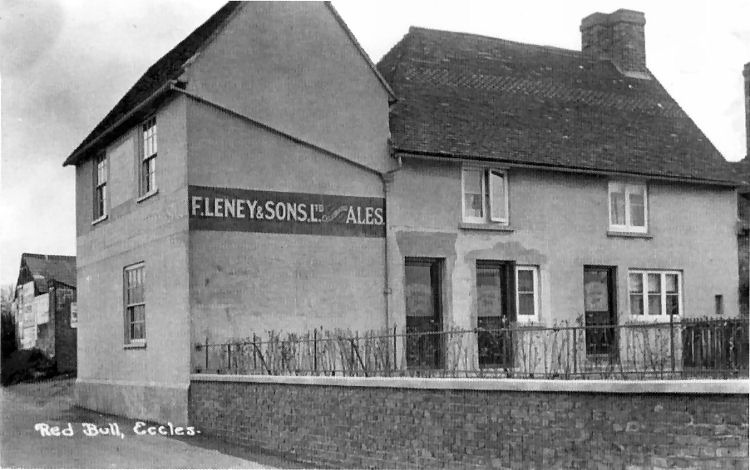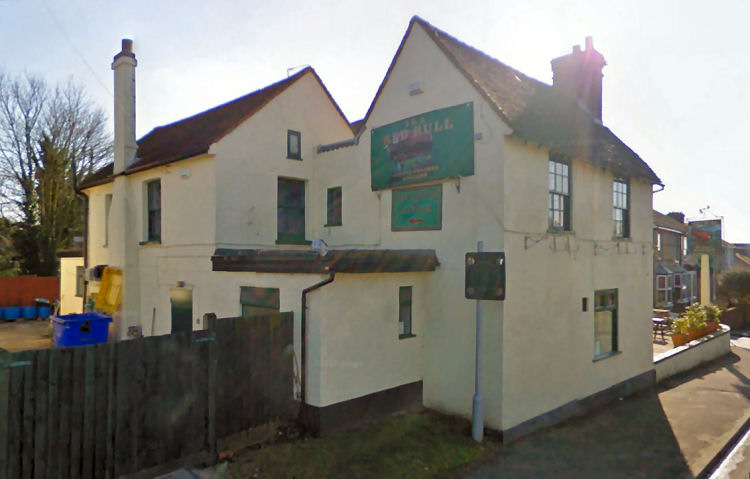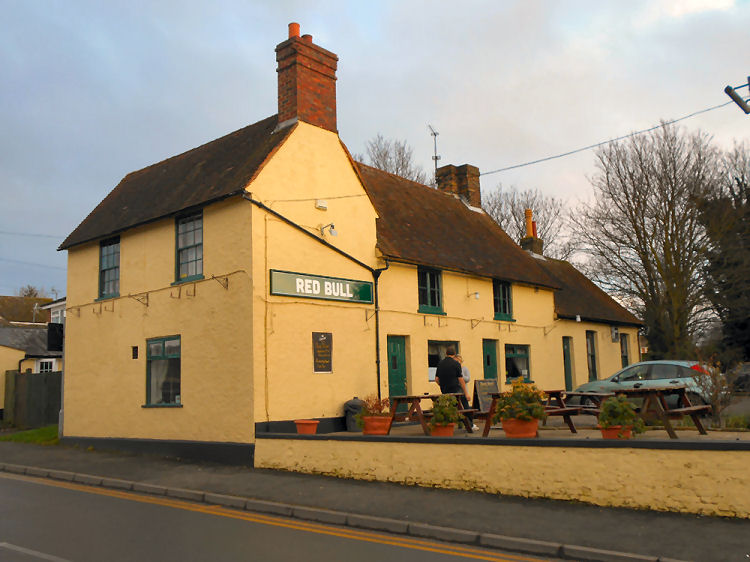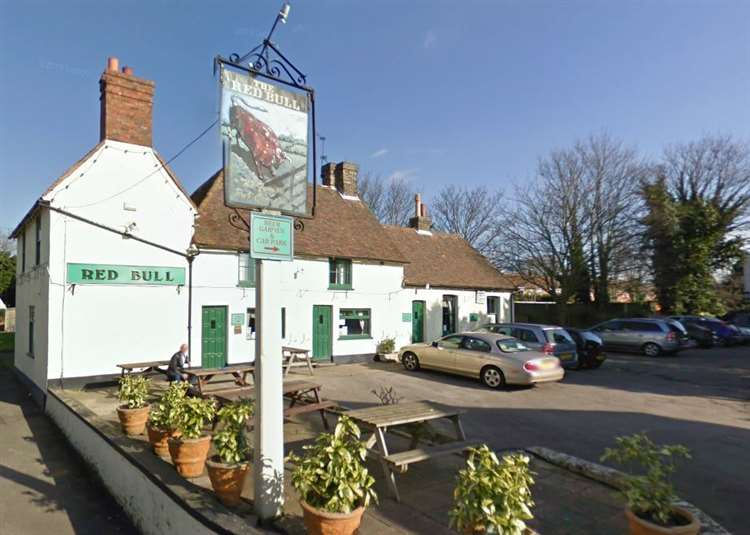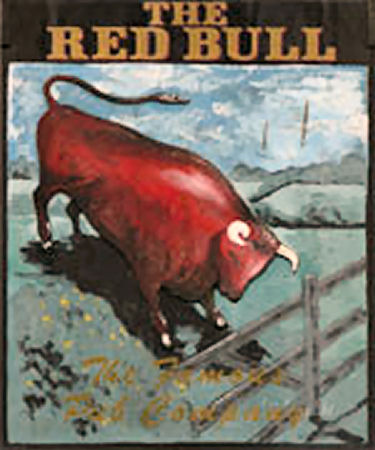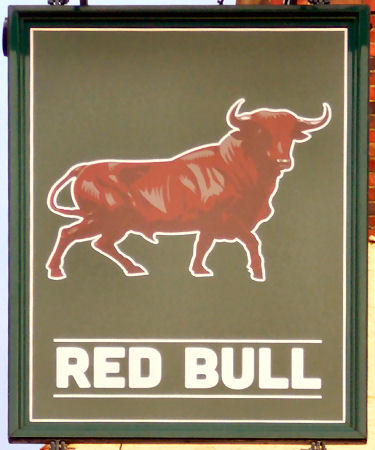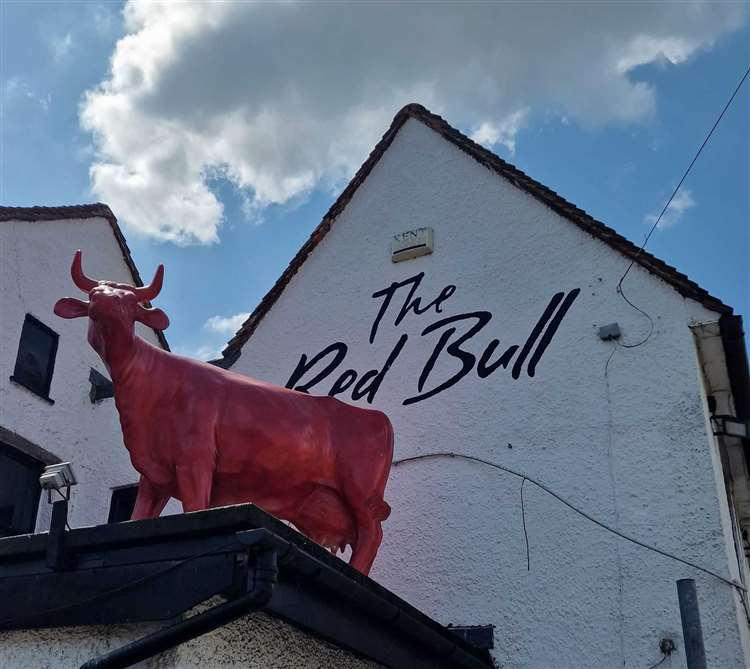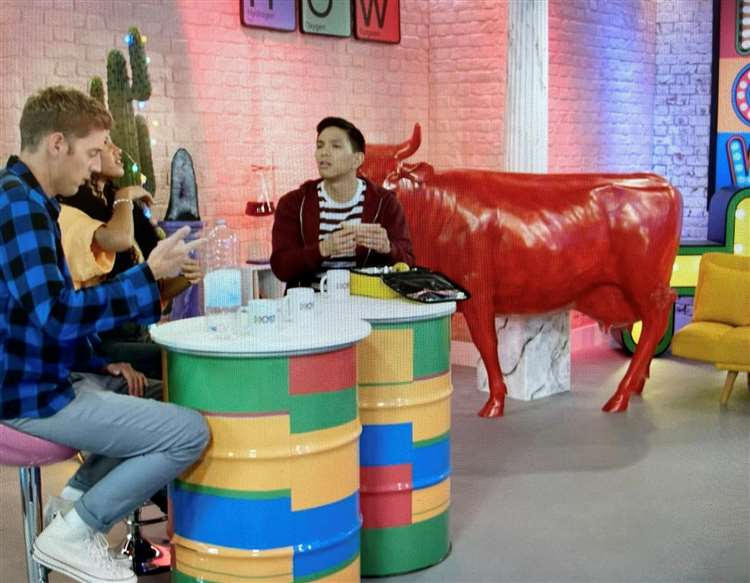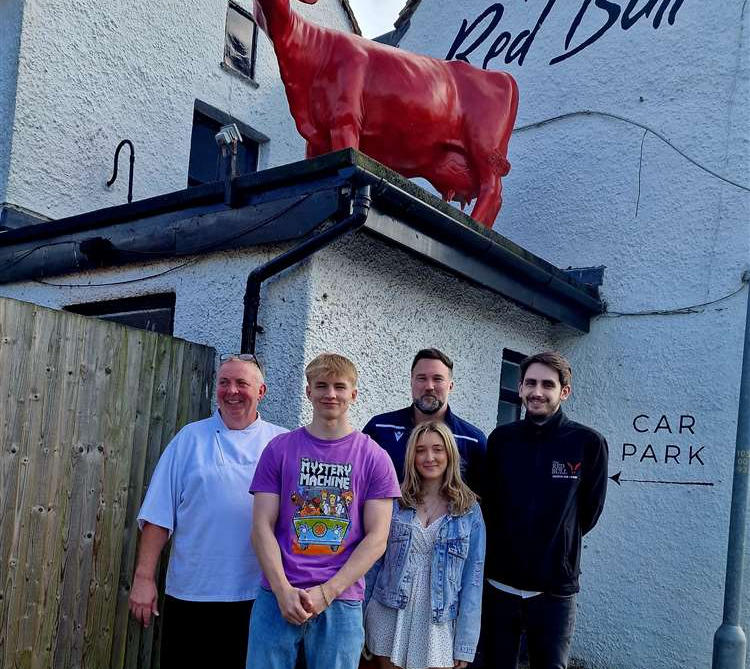|
Kent Messenger & Gravesend Telegraph, Saturday 30 May 1914.
Shocking accident at Burham.
Mr. T. Buss, County Coroner, held and inquest at the "Red Bull Inn,"
Eccles, on Monday afternoon, concerning
the death of Horace James Coppard, a 36, of the Rocks, East Malling,
who was killed by a full of earth while
working for the Associated Portland Cement Company in Great Culand
Quarry, Burham, on Friday morning. Mr.
H. Walker, H.M. Inspector of Mines and Quarries, attended the
enquiry, and Mr. Robert Hoar represented the
relatives. Mr. Frederick Hart was chosen foreman of the jury.
Mrs. Coppard, the widow, having giving evidence of identification,
Thomas Randall of Aylesford, said he had
worked with deceased since Christmas. On Friday morning three of
them was shovelling earth which had been
dug out of the bank into a truck. The length of the opening in the
bank was about 15 feet, and they had
excavated some 18 inches. About 7 o'clock witness noticed a little
piece of callow breaking away at the top of
the chamber, and anticipating that this indicated a fall, he shouted
"Look out" to his mates. Witness and a man
named Gadd managed to get out of the way, but before deceased could
get clear the whole section had fallen
upon him and completely buried him. Assistance was immediately
obtained, but it took 10 minutes to dig him
out. He was quite dead, the body being doubled up, with his head on
the feet. A few minutes before the
accident the foreman was standing on the top of the earth which gave
way. Witness had never known a similar
occurrence during the three years he had worked for the company.
The Coroner:- Is any examination made before you commence work in
the morning?
No.
Are there any instructions given from day-to-day, or do you proceed
with your job without reference to any
one?
There is no occasion.
Is there any systematic or periodical inspection?
The foreman comes around to see that everything is alright.
Every day?
Yes.
Mr. Bailey (a juryman). Did the truck into which a shovelling
obstruct you and getting away?
It did partly obstruct the deceased. I ran one side of it and the
other man round the other side.
Would deceased have got away if he could have run straight out?
He was working in the middle, and I don't think he would have got
clear.
Have you a lookout man on the top?
No.
Are there any regulations issued by the company as to how far you
are to cut underneath the bank?
I cannot say.
He cut in as far as you like?
Yes.
Do you think that you take more risks on piecework and in doing day
work?
No.
Mr. Walker:- You had this face undercut?
Yes.
Have you any legs in it all?
Yes, one at each end.
You had not cut them out?
No.
Leonard Gadd, labourer, Bluebell Hill, corroborated the last witness.
Arthur Huggens, Scotland Cottages, Burham, who has been foreman at
the works for 4 years, stated that he
was on top of the bank shortly before the accident, and never
noticed anything.
The Coroner:- You had not been down below to examine how far the men
have cutting?
No.
Is there any regulation as to how far a man may cut in?
No, they use their own discretion.
Can you account for this fall?
No.
Have you ever known a similar accident?
On the other side we had a fall once, and a man was hurt. After that
it was always an understood thing that
two "legs" were to be left, one on each side.
Do the men work under regulations or according to circumstances?
We never set any regulations for them except as to leave in the
"legs" in.
Mr. Bailey:- Have you ever warned men they were working under too
great a risk?
No, I have never seen them doing it.
Do you ever have a look out man on the top when they are shovelling
underneath?
When they are undermining the men have one of their own number
watching on the top that is when they take
the legs out.
These three men was shovelling underneath, but there is no man on
the top?
No, because it was not ready to come down.
Mr. Hoar:- If it had been ready to fall would you have had a look
out man?
Yes, one of the three men would have been on the lock out.
Mr. Edwin Butler, manager of the Burham branch of the A.P.C.C. was
also called, and agreed with the other
witness's that there were no particular regulations.
Dr. Gregory said the man was quite dead when he arrived at 7:40. The
post-mortem examination showed that
he had fractures of the neck, back, thigh, and four ribs, and the
number of other injuries, and that death must
have been instantaneous.
The Coroner:- Do you think that death resulted from the injuries
rather than suffocation?
Oh, yes, there was no evidence of suffocation at all.
In summing up the facts to the jury, the Coroner said it seemed
impossible to set rules which the men must
follow in carrying out this work, and they had to proceed according
to their own judgement and as experience
dictated, but any suggestion which the jury might make would, he
felt sure, be carried out, if possible, by the
company.
Mr. Bailey wanted the jury to recommend that there should be a look
out man on the top when others are
working underneath; but others demurred.
Mr. Butler hoped it would not be thought there was lack of
supervision. Forman had visited the work several
times each day and he always went round at least once. However, the
company would fall in with any
reasonable suggestions that might be made.
The Coroner pointed out to the jury, who continued to discuss the
question, that Mr. Walker, the Home Office
Inspector, was an expert and, having heard the evidence and visited
the quarry, any recommendation for the
safety of the men which he could make would be communicated to the
company.
The jury returned a verdict of Accidental Death.
Mr. Butler said he would like to express very sincere sympathy with
the relatives of the deceased. The company
always greatly regretted these accidents, and they took all possible
precautions to secure the safety of their
employees.
The Coroner and jury joined in his expression of sympathy.
|
